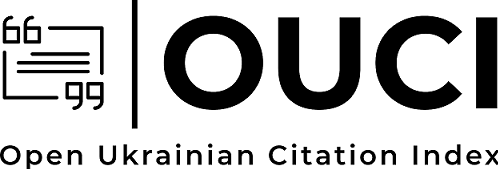The Run-up and the Beginning of the German-Soviet Warin the Research of Foreign Scholars
DOI:
https://doi.org/10.28925/2524-0757.2021.29Keywords:
foreign historiography, German-Soviet war, Workers’ and Peasants’ Red Army, Wehrmacht, “blitzkrieg”, operation Barbarossa, HolocaustAbstract
The article is dedicated to the key issues of the run-up and beginning of the first period of the German-Soviet war, which are reflected in foreign historiography. The authors of the publication tried historically reconstruct the events that preceded Nazi Germany’s attack on the USSR, the military confrontation on the Soviet-German battlefield from June 22 to December 1941 based on the most famous works of researchers from neighboring countries and beyond.The publication attempts to cover a wide range of problems: secret diplomacy, political maneuvers of the USSR and Germany in advance of the war, strategic plans of the Workers’ and Peasants’ Red Army and the Wehrmacht, the course of military operations on the Eastern Front in the summer and winter of 1941.The authors of the publication mainly focus on documents and materials belonging to direct participants of the events, well-known scholars and politicians. The facts and analysis of historical events presented by them cannot remain outside the scientific controversy. The geopolitical plans of the Nazis, who posed a threat to the entire world civilization, seem impressive.The article refutes most of the assessments and key conclusions from the times of Soviet historiography. Important historical sources included in the scientific discourse deny the conceptual issues of the Soviet historical narrative about the nature of international relations on the run-up of the war and the initial period of the war with Nazi Germany. The authors explain their critical attitude to the publications of the post-Soviet era, which, first, do not pass the source test, and second, do not meet the principles of humanism, democracy and tolerance, which are inherent in the ideas of the 21st century.To obtain unbiased results and conclusions, the authors of the publication relied on various methods of scientific research: content analysis, synthesis, historical-comparative, historical-chronological, critical and comparative analyses.The authors believe that this publication is not only of scientific and cognitive interest, but provides a deep understanding of the lessons of the past war, which are important for the current security of the Ukrainian state and formation of patriotic consciousness of society, unbiased evolvement of its historical memory. The presented results of research in foreign historiography are a strong argument for modern Ukrainian discourse.The main visions of the authors meet the consolidation of the current scientific trend of Ukraine — glorification of the significant role of the Ukrainian people in the victory over Nazi.
Downloads
References
Albright, M., & Woodward, B. (2019). Fashyzm: zastoroha [Fascism: A Warning]. Kyiv: Fors-Ukraina [in Ukrainian].
Clark, A. (2002). Plan Barbarossa: Krushenie Tretiego Reikha. 1941–1945. Moskva: Tsentrpoligraf [in Russian].
Danylenko, V. (Ed.). (2009). Radianski orhany derzhavnoi bezpeky u 1939 — chervni 1941 r. Dokumenty HDA SB Ukrainy. Kyiv: Vydavnychyi dim “Kyievo-Mohylianska Akademiia”. [in Ukrainian].
Deiton, L. (2000). Vtoraia mirovaia voina: oshibki, promakhi, poteri. Moskva: Eksmo-Pres, Eksmo-Market [in Russian].
Görlitz, W. (2005). History of the German General Staff, Its History and Structure 1657–1945. Moskva: Centrpoligraf [in Russian].
Görlitz, W. (2005). Germanskii Generalnyi shtab 1657–1945. Istoriia i struktura [The German General Staff, Its History and Structure 1657–1945]. Moskva: Tsentrpoligraf [in Russian].
Glantz, D. (2009). Vosstavshiie iz pepla [Colossus Reborn: The Red Army at War, 1941–1943]. Moskva: Yauza, Eksmo [in Russian].
Gorodetskii, G. (1995). Mif Ledokola. Nakanune voiny. Moskva: Progress, Akademiia [in Russian].
Goth, H., & Guderian, H. W. (1999). Tankovyie operatsii. “Tanki-vpered”. Smolensk: Rusich [in Russian].
Halder, F. (2004). Voiennyi dnevnik. 22.06.1941–24.09.1942. Moskva: Olma-Press [in Russian].
Hastings, M. (2019). І розверзлося пекло… Світ у війні I rozverzlosia peklo… Svit u viini1939–1945 rokiv [All Hell Let Loose: The World at War 1939–1945]. Kharkiv: Klub Simeinoho dozvillia [in Ukrainian].
Hawes, J. (2000). Kratkaia istoriia Germanii [The Shortest History of Germany]. Moskva: Azbuka-Attikus [in Russian].
Heinz, H. (2004). SS i orden «Mertvaia golova». Moskva: Tsentrpoligraf [in Russian].
Helger G., & Mejer A. (2008). Rossiia i Germaniia. Soiuzniki ili vragi? M.: ZAO “Tsentrpoligraf” [in Russian].
Jakobsen, G. (2005). Vtoraia mirovaia voina. Vzgliad iz Germanii. Moskva: Yauza, Eksmo [in Russian].
Levitas, F. (2002). Napad natsystskoi Nimechchyny na SRSR ochyma heneraliv Vermakhtu. Storinky voiennoi istorii Ukrainy, 6, 96–99 [in Ukrainian].
Levitas, F. (2012). Druha svitova viina: ukrainskyi vymir. Kyiv: Nash chas [in Ukrainian].
Meltuhov, M. (2000). Upushchennyi shans Stalina. Moskva: Veche [in Russian].
Mitcham, S. W. Jr., & Mueller, G. (1995). Komandiry Tretiego Reikha [Hitler’s Commanders]. Smolensk: Rusich [in Russian].
Mukovskyi, I., & Lysenko, O. (1996). Zvytiaha i zhertovnist. Ukraina na frontakh Druhoi svitovoi viiny. Kyiv: Knyha pamiati Ukrainy [in Ukrainian].
Pleshakov, K. (2006). Oshibka Stalina. Pervyie 10 dnei voiny. M.: Eksmo [in Russian].
Popovych, M. (2005). Chervone stolittia. Kyiv: ArTek [in Ukrainian].
Rudoi, G. (Comp.). (2000). Otkroveniia i priznaniia. Natsistskaia verkhushka o voine «Tretiego Reikha» protiv SSSR. Sekretnyie rechi. Dnevniki. Vospominaniia. Smolensk: Rusich [in Russian].
Runov, V. (2011). Udar po Ukraine. Vermakht protiv Krasnoi Armii. Moskva: Veche [in Russian].
Runov, V. (2010). Pobednyi parad Gitlera. Pravda ob Umanskom poboishche. Moskva: Yauza, Eksmo, 416 p. [in Russian].
Sharipov, A. (1978). Cherniakhovskii. Moskva: Molodaia gvardiia [in Russian].
Solovev, I., & Chugunov, A. (Comps.). (1976). Pogranichnye vojska SSSR v Velikoj Otechestvennoj vojne. 1941: sbornik dokumentov i materialov. Moskva: Nauka. [in Russian].
Tippelskirch, K., Kesselring, A., & Guderian, H. W. et. al. (1998). Itogi Vtoroi mirovoi voiny. Vyvody pobezhdennykh. Moskva: Poligon, AST [in Russian].
Vaniukov, D., & Gnusakov, A. (2007). Velikaia Otechestvennaia voina. Moskva: Mir knigi [in Russian].
Westphal, S., Kreipe, W., Blumentrit, G., Bayeriein, F., Zeitzler, K., Zimmerman, B., & Manteuffel, H. von (1999). Rokovyie resheniia Vermakhta [The Fatal Decisions]. Rostov na Donu: Feniks [in Russian].
Yekelchyk, S. (2020). Ukrainskyi dosvid Druhoi svitovoi viiny. Kyiv: Meduza [in Ukrainian].
Published
How to Cite
Issue
Section
License
Copyright (c) 2021 Фелікс Левітас, Шаміль Рамазанов

This work is licensed under a Creative Commons Attribution-NonCommercial-ShareAlike 4.0 International License.
Authors who publish in this journal retain the right of authorship of the work and give to the journal right of first publication of this work under the conditions of Creative Commons: Attribution-NonCommercial-ShareAlike 4.0 International (CC BY-NC-SA 4.0), which allows others freely distribute the work published with reference to the authors of the original work and the first publication of this magazine.














